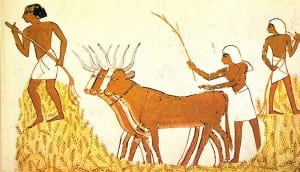Going out with a Bang – Behind the Scenes at Cheltenham – Day 6/6
By Thomas A Roberts, on 18 June 2012
Behind the Scenes at Cheltenham is a daily blog from the UCL CABI team at Cheltenham Science Festival. Every day, a member of the team will be talking about their experiences of running a stand.
Day 1 | Day 2 | Day 3 | Day 4 | Day 5 | Day 6 |
Orchestrating and conducting a live MRI scan for an audience of more than 600 people is very hard. Very, very hard.
On the penultimate day, our boss and director of the Festival, Mark Lythgoe, phoned me. He was due to present a show the following day titled Brain Scan Live: Lies and Deception, and he wanted me to take an integral role behind the scenes.
The idea of the show was to use functional magnetic resonance imaging (fMRI) to demonstrate that your brain doesn’t lie when presented with images that evoke a memorable response.
I was primarily tasked with constructing a crime scene where a volunteer from the audience would commit theft. The participant would then be taken to the nearby Cobalt Imaging Centre where they would be presented with pictures of the crime scene while undergoing an fMRI scan. In theory, photos from the crime scene would evoke a strong ‘lighting-up’ of the brain in the scans whereas photos of unfamiliar rooms would have little effect.
The first challenge was finding a room for the crime scene: we located a small office in the Cheltenham Town Hall. There was a distinct sense of irony when I had to explain to a stranger that I was rearranging her office and sifting through her desk drawers for a science experiment.
Despite her raised eyebrows, I convinced her I was telling the truth. Quickly I set about rearranging the room and planting some visual cues designed to evoke the volunteer’s recognition response during the scan. These included some crates of Coke cans, a mask replete with glowing green hair, some deliberately placed indoor plants, a dirty plate and a giant foam thumb pointing at the bounty. Furiously I photographed the office along with another four different control rooms before bed.
 Close
Close




